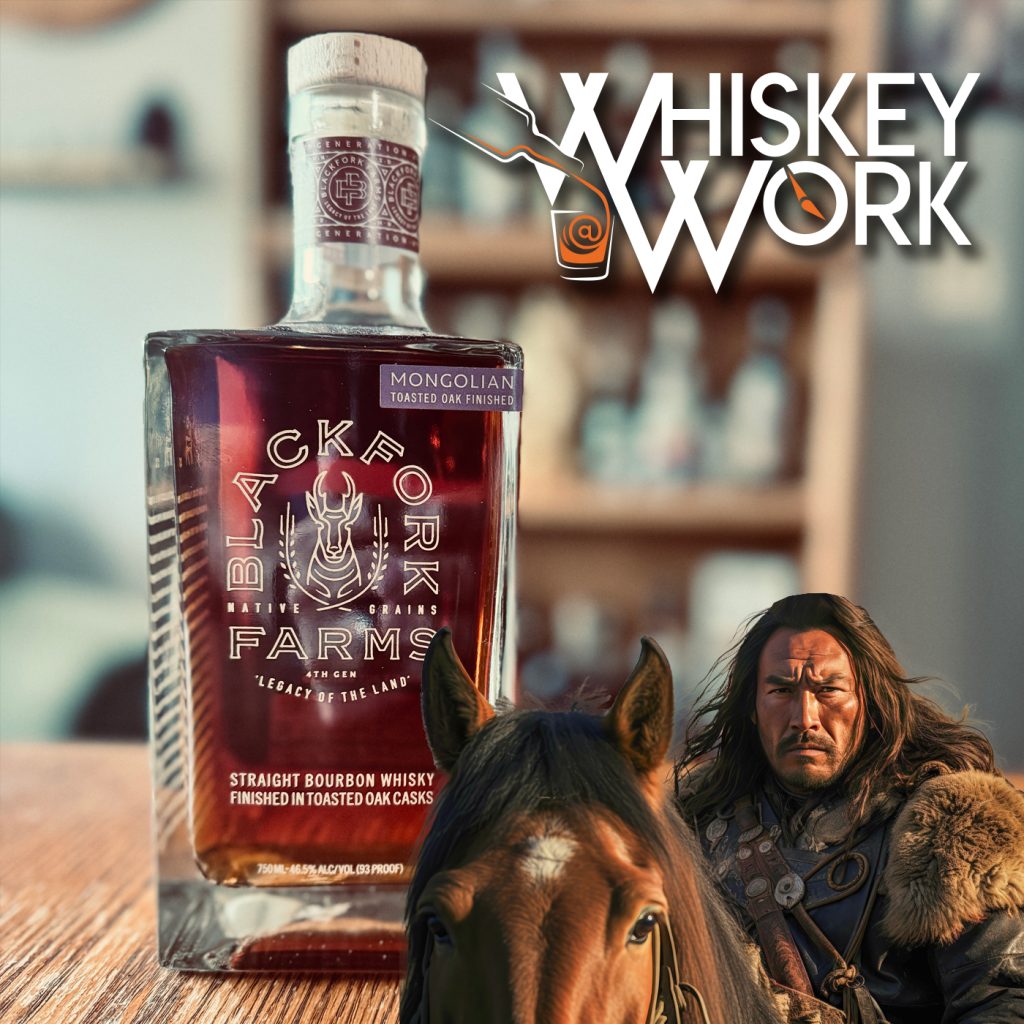RAPID CITY, S.D. — A local distillery with a global twist took center stage in the latest episode of the Whiskey@Work podcast as hosts Rob and Mark were joined by Justin Henrichsen of Independent Ale House and Windsor Block to sample and discuss BlackFork Farms bourbon, a South Dakota-made whiskey finished in Mongolian toasted oak.
Located in Brandt, a small town north of Brookings, BlackFork Farms has gained attention for its farm-to-glass approach. The distillery uses heritage grains, including Dakota White, Cheyenne Red, and Coteau Calico corn, and smokes its corn before distillation, a process that piqued the curiosity of the show’s hosts.
What really drew them in was the Mongolian oak finish.
“I had never heard of Mongolian oak,” host Mark Houston said. “So I had to get the bottle just to find out what it did to the whiskey.”
Henrichsen, whose bars house more than 900 varieties of whiskey, was intrigued but honest in his assessment. He noted that while the whiskey was drinkable and unique, it still tasted young. He added that the density of Mongolian oak could slow aging, potentially limiting how much flavor the barrel imparts.
The group also discussed whether whiskey drinkers recognize or appreciate unique finishes like Mongolian oak. While some customers specifically ask for finishes like toasted Elijah Craig or port-cask expressions, Henrichsen said most people gravitate toward what they know or what catches their eye on the shelf.
“Honestly, I just taste it and decide if I can sell it,” Henrichsen said.
Despite critiques of the whiskey’s youth, all three agreed the bottle had a distinct profile that made it worth trying and sharing.
“It’s not the best one I’ve ever had,” said co-host Rob Henry, “but it’s unique enough that I’d pour it for someone and say, ‘Tell me what you think.’”
BlackFork Farms bourbon is currently available at its Deadwood tasting room. As the episode wrapped, the team agreed the whiskey’s uniqueness, from smoked heirloom corn to rare oak barrels, makes it a notable entry in South Dakota’s growing craft spirits scene.


